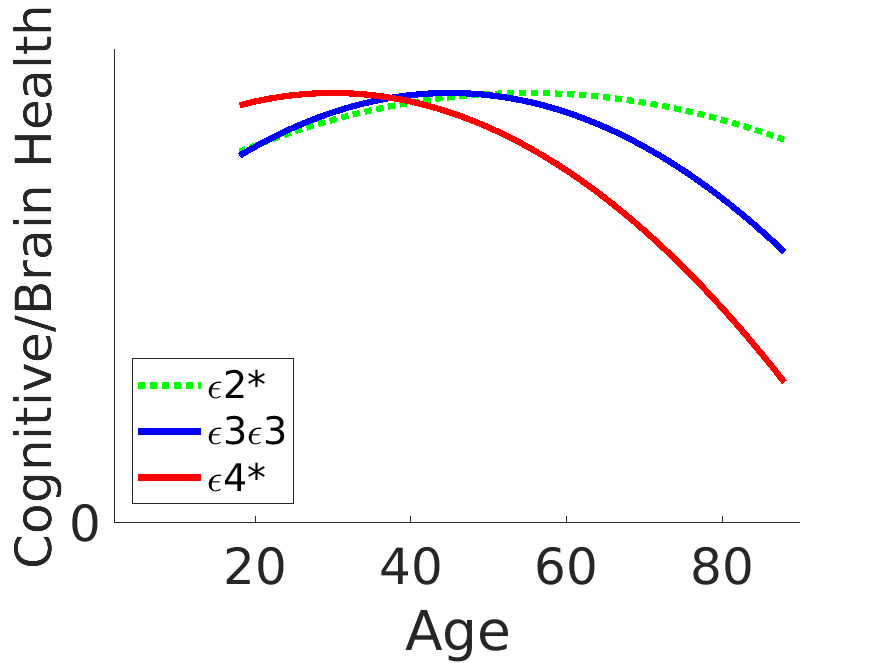BNA Annual General Meeting 2025
1st April 2025
21st Oct 2020
The very first Registered Report has been published in the British Neuroscience Association (BNA) journal, Brain and Neuroscience Advances, this month, marking another milestone in the BNA's commitment to supporting 'Credibility in Neuroscience'.
The Registered Report tested the antagonistic pleiotropy hypothesis of Apolipoprotein E (APOE). Interestingly, it did not find evidence to support this hypothesis, indicating that it may be persisting due to publication bias in the field.
APOE is a protein that has been implicated in synaptogenesis and modulation of neurodegenerative processes in Alzheimer’s Disease (AD).
The gene coding for APOE varies in the general population, with possession of the “ε4” variant allele being associated with a 3-4 fold increase in the risk of AD in old age.
However, there are also reports that the ε4 allele confers benefits earlier in life. Cognitive and neural benefits while still fertile might contribute to the persistence of ε4 in the population. For example, there are reports that brain activity during certain tasks in young, healthy people is higher in those possessing the ε4 allele.
This hypothesis that some traits associated with a gene are beneficial while others are detrimental is called “antagonistic pleiotropy”.
While several lines of evidence support antagonistic pleiotropy of APOE, these have tended to come from small samples, particularly those using brain imaging such as structural and functional magnetic resonance imaging (MRI), given the expense of these methods. Brain imaging also faces the risk of high rates of false positives owing to the large number of different analyses that can be performed.
“Registered Reports”, a relatively new format of publication offered by journals including Brain and Neuroscience Advances, minimise this risk by pre-specifying the precise analyses and ensuring these have sufficient statistical power, before the analyses are applied to the data. This format will help tackle the replication crisis faced by many scientific fields including neuroscience.
Henson and colleagues used a relatively large sample (at least for brain imaging) of over 600 adults, aged 18-88, who  completed a battery of cognitive tests and had a range of brain scans (using both MRI and a complementary technique called magnetoencephalography, MEG) as part of the “CamCAN” cohort (www.cam-can.org).
completed a battery of cognitive tests and had a range of brain scans (using both MRI and a complementary technique called magnetoencephalography, MEG) as part of the “CamCAN” cohort (www.cam-can.org).
No evidence was found to support the antagonistic pleiotropy hypothesis: though the measures of cognition and brain varied with age, Bayesian statistics provided strong evidence that this variation did not depend on APOE variant.
While this sample is still smaller than many other genetic studies, it should have been able to detect the effect sizes reported in previous studies.
However, it is likely that these effect sizes have been over-estimated owing to “publication bias” (the fact that null results rarely get reported).
The increasing use of Registered Reports, where publication is guaranteed publication regardless of the outcome (provided reviewers think the methods are sound enough), means that future studies and meta-analyses should have more accurate estimates of true neuroscientific effects - and will help to promote 'credibility in neuroscience'.
Click here to read the full journal article
For more information and insights on how the BNA is working to address the issues above, check out our Credibility in Neuroscience project.
Brain and Neuroscience Advances is a peer-reviewed, open-access journal, which publishes high quality translational and clinical articles from all neuroscience disciplines; including molecular, cellular, systems, behavioural and cognitive investigations.
The journal welcomes submissions in basic, translational and/or clinical neuroscience. Research papers should present novel, empirical results that are expected to be of interest to a broad spectrum of neuroscientists working in the laboratory, field or clinic.
Brain and Neuroscience Advances is now indexed in PubMed Central.
Never miss the latest BNA news and opportunities: sign up for our newsletter